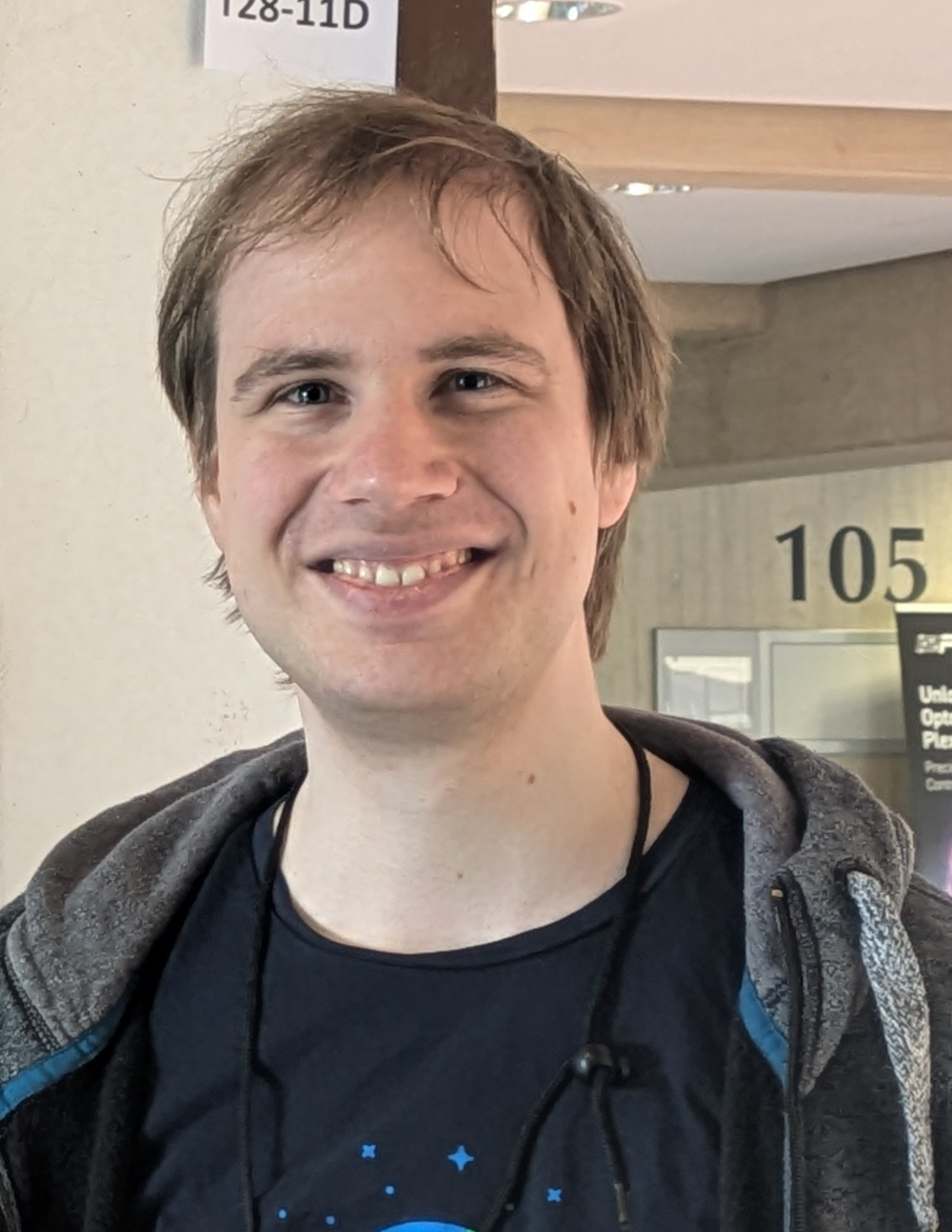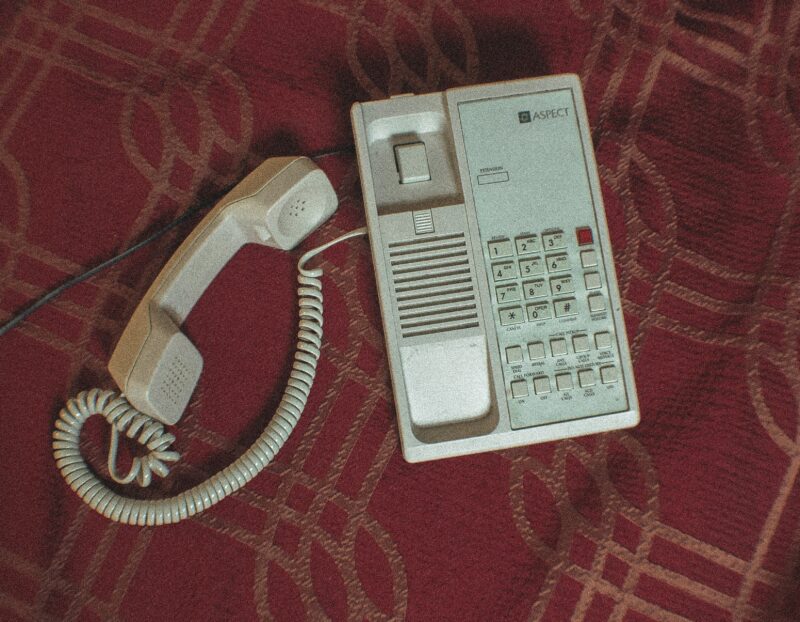
Meet Sovereign Tech Fellow Matthias Klumpp
By Theresa Röcher
In News, Fellowship
Open source maintainer and PhD candidate Matthias Klumpp first got curious about Linux as a teenager with a very slow internet connection but big passion for computer systems. That curiosity sparked a journey into open source that continues to this day. In this interview, Matthias shares how coding for fun evolved into maintaining critical infrastructure for millions of users and why strong maintainership is essential for collaboration in diverse communities.
Tell us a bit about your background. How did you get involved in open source?
I originally got involved in open source as a teenager who was interested in science and wanted to know how computers work. Linux was something I was curious about, and it allowed me to understand operating systems much better due to its open source nature. And of course, I wanted to use Linux as main operating system too.
Back then, in the mid-2000’s, I first had no and then only a slow internet connection and a slow computer, so compiling software from scratch and downloading dependencies on Linux was a lot harder than getting software for Windows from CDs. I wanted to improve that, and make software management on Linux easier. At the same time, Richard Hughes, an open source developer and contributor, was working on PackageKit, a Linux package management abstraction layer, designed to make installing and updating software on your computer easier. I was inspired by the idea and joined the project, learning C as I contributed. The maintainers' thoughtful code reviews helped me steadily improve. As time went on, I became involved with operating systems like Debian and Ubuntu, developed AppStream, a tool that helps Linux systems show more useful info about apps, got a lot deeper involved with more Freedesktop projects and the politics behind it, and eventually became co-maintainer of PackageKit, one of the projects that got me into open source in the first place. Being involved with Google’s Summer of Code, a global, online program focused on bringing new contributors into open source software development, as both participant and mentor also helped a lot on that journey.
So, curiosity about how computers work and how to write code as well as the joy of building things got me into open source, patient maintainers like Richard and also many, many others made me feel welcomed, and meeting the real people behind the code at conferences like FOSDEM, Debconf, Akademy and GUADEC made me stay in FOSS. Even though it started as a hobby and I went on to study biomedicine, my open source work never stopped and ultimately became a profession for me as well.
Tell us more about the projects you’ll be working on during the fellowship. What makes it important?
My time is split between multiple projects, most importantly AppStream, Freedesktop and PackageKit.
AppStream is a metadata format, metadata generation and parsing library for software components. The first goal of AppStream is to allow software developers to describe the software they are writing, so other people can decide if they want to install the software or not. This includes, for example, a long description of what the software does, icons, screenshots etc. Think of everything you see on an “app store” page! The second goal is to provide machines with enough information to make them recognize a missing component and install it on demand. For example, if the user encounters a new file format, the system can find an application that can open it, or if new hardware is plugged in, the system can offer software that can use it or install a missing driver automatically, or if the user switches the system language, missing language packs can be installed automatically. I originally developed AppStream for use with Linux distribution’s package management systems, but it currently is used by an extremely wide variety of software, including cross-distribution software distribution systems like Flatpak. As part of the Sovereign Tech Fellowship, I intend to advance the specification and harden the AppStream parsing code to improve security and make AppStream an even more useful building block for building software deployment systems on Linux.
Freedesktop.org is a special project. It was created in the early 2000’s as a collaboration platform to improve interoperability and share technology between free-software desktop environments. Many important projects are under the Freedesktop umbrella, among them are the foundational specifications for things like application menus, desktop notifications, icons/sound themes etc. In recent years, progress and collaboration on the platform has stalled, with contributions getting merged extremely slowly and discussions running for years with no clear endpoint. As part of the Sovereign Tech Fellowship and as maintainer of the Freedesktop specifications, I will work on improving these processes and bringing a lot of cross-desktop technology that was developed externally due to Freedesktop’s slow processes back into Freedesktop properly. I also want to make the Freedesktop website more useful for application developers wanting to target the “Linux desktop” as a platform, to make it easier to see which technologies are available on which desktop environments.
PackageKit is an abstraction layer for package management of Linux distributions - it permits the development of cross-distribution applications that access the distribution’s package manager using a generic API to install software or keep the system up-to-date. We initially thought that with the move to atomic distributions and containers, PackageKit would become less relevant. But it is still more relevant than ever before, and used a lot even on servers with tools like Cockpit. Because PackageKit was only sporadically maintained for years, there is a huge backlog of maintenance activities though that need to be performed on the code, as well as many pending merge requests to be reviewed.
What brought you to the Sovereign Tech Fellowship?
I had been following the Sovereign Tech Agency for a while and was excited when they announced their Fellowship program for maintainers, but I originally didn’t think that it was for me due to my existing work schedule. However, the program offers a great deal of flexibility, and working reduced hours allowed me to balance the Fellowship with my ongoing PhD research in neuroscience and other consulting work. At the same time, I saw firsthand how challenging daily project maintenance could be—contributors on the PackageKit side were calling for better support, while frustration was growing on the Freedesktop side due to persistent issues not being addressed and reviews being slow. These experiences ultimately motivated me to apply for the Fellowship.
Especially for Freedesktop, this is the first time (to my knowledge) that someone is paid to explicitly work on maintaining the specifications (rather than it being a side-task of a larger project). And this is quite exciting, because we need more collaboration and fewer frustrated contributors.
We need more collaboration and fewer frustrated contributors!
What makes open source collaboration special and what do you enjoy most about it?
One of the challenges in open source collaboration is the wide range of perspectives that come from contributors with vastly different backgrounds—people from various companies with differing goals, long-term consultants, high school students, and individuals from diverse cultures around the world all coming together to discuss a change. While this diversity can make consensus and progress more difficult, I believe that, under strong maintainership, it ultimately leads to better outcomes: the final code becomes more robust, more widely applicable, and of higher quality.
What makes open source collaboration special is that everyone can participate - this can make it uniquely great, but also very difficult. The other special thing is that collaboration goes beyond code: People connect at conferences, and most people in open source share common values too. At its core is the belief that anyone should be able to understand technology and how data is being processed by computer systems, and to give everyone the tools to use the full potential of computers but also understand the code and see how data is processed.
Working on code that matters for so many people in the world is also uniquely fulfilling.
Based on my experience, one of the most important skills a new open source maintainer can develop is the ability to say “no” — politely but firmly. Like a ship’s captain, a maintainer must listen to the crew, weigh their input, and foster collaboration. But at times, they also need to make tough decisions and overrule suggestions to keep the project on course. If every idea is accepted or every compromise made, the project risks losing direction, or worse, stalling entirely as the team continually tears down and rebuilds the sails without ever setting out to sea.
Collaboration goes beyond code: Most people in open source share common values. At its core is the belief that anyone should be able to understand technology and how data is being processed by computer systems, and to give everyone the tools to use the full potential of computers but also understand the code and see how data is processed.
What do you do when you’re not working on open source?
When I’m not working on open source I am in the lab, electronics workshop or in front of a microscope for my PhD project. If I am not doing that though or am traveling somewhere, I am (slowly) practicing to play the electric guitar or work on creative writing projects. I would also never refuse an invitation to go to the theater or a musical, to go on long hikes with friends or join a skiing trip in winter.
Connect with Matthias
We’re grateful to Matthias for being part of the first cohort of the Sovereign Tech Fellowship and for his continued contributions to the FOSS ecosystem. If you are interested in Matthias' work, you can visit the repositories listed below. You can also find Matthias on GitHub, Mastodon, Bluesky or on this blog.

Open source maintainer, PhD candidate and Sovereign Tech Fellow Matthias Klumpp


